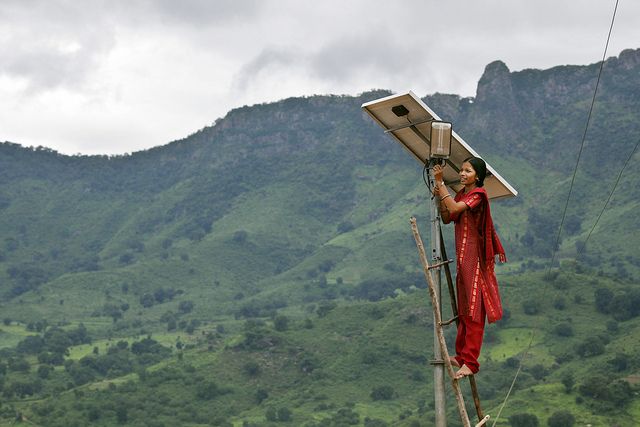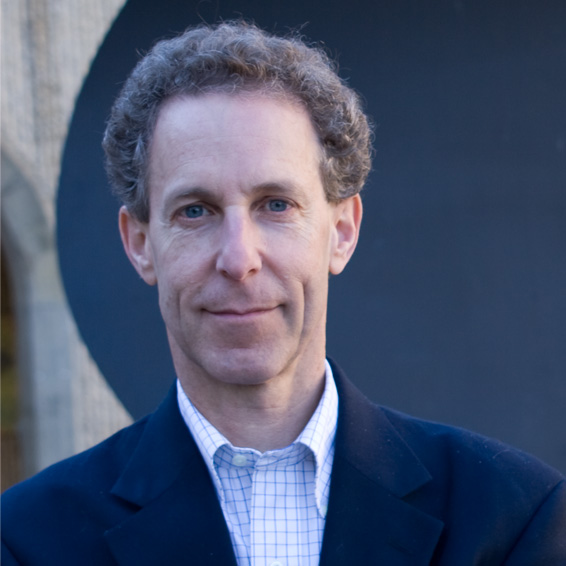Reach for the Sun: How India’s Audacious Solar Ambitions Could Make or Break its Climate Commitments
Varun Sivaram, Gireesh Shrimali, and Dan Reicher
Stanford Steyer-Taylor Center for Energy Policy and Finance
December 8, 2015
Report Synopsis

Prime Minister Narenda Modi has committed India to dramatically increase its deployment of solar power to 100 gigawatts (GW) by 2022, a quantity exceeding half of all solar capacity installed globally as of 2014. This study assesses the feasibility of Prime Minister Modi’s solar ambition and the opportunities it presents for India and the world, as a pivotal climate change conference in Paris gets underway.
The study reaches three important conclusions. First, for solar power to succeed as a serious climate tool in India, it will also need to deliver an array of domestic co-benefits—from improving power reliability and access to electricity to cutting air pollution and energy imports—thereby building significant political support and investment to dramatically ramp up solar deployment.
Second, three very different segments of the solar industry—utility-scale, distributed, and off-grid solar—will be required to deliver both climate results and domestic co-benefits to India.
Third, the Indian national and state governments, with the support of countries and institutions around the world, can advance the development of these diverse segments of solar by pursuing four building blocks of a successful solar strategy, which are to:
- Reform the utility sector;
- Harmonize federal and state policies;
- Secure substantial and cost-effective financing;
- Foster the diffusion of technology and standards from abroad.
With these building blocks in place, India and its international partners can greatly accelerate the deployment of solar power and with it progress toward the world’s climate imperative.
Press
- “India’s Bold Solar Commitment Is Attainable, Says Stanford Study.” SLS News, 7 December 2015.
- “How India Could Actually Reach Its Audacious Solar Targets.” Council on Foreign Relations blog, 8 December 2015.
- “How India’s Solar Ambitions Can Become Reality.” Wall Street Journal India blog, 8 December 2015.
- “India’s High Ambition Of 100 Gigawatts Of Solar Power By 2022.” RTT News, 8 December 2015.
- “India’s High Ambition Of 100 Gigawatts Of Solar Power By 2022.” NASDAQ, 8 December 2015.
- “India’s solar goals a global priority, says Stanford report.” The Economic Times, 9 December 2015.
- “Africa gets $10bn pledge for renewable energy.” United Nations Network, 10 December 2015.

Varun Sivaram
Varun Sivaram is the Douglas Dillon fellow at the Council on Foreign Relations. He is also a strategic advisor to the office of New York Governor Andrew Cuomo on Reforming the Energy Vision (REV). Before joining the Council, he was a consultant at McKinsey & Company, where he counseled Fortune 500 companies on adapting to the modern competitive landscape in energy. Prior to this role, he served as a senior advisor for energy and water policy to the mayor of Los Angeles, Antonio Villaraigosa, and oversaw the city’s Department of Water and Power.
His work has appeared in the Journal of Applied Physics, the Journal of Physical Chemistry, Nature, Nature Climate Change, Scientific American, and the World Economic Forum. A Truman and a Rhodes scholar, Dr. Sivaram holds degrees from Stanford University in engineering physics and international relations, with honors in international security. He holds a Ph.D. in condensed matter physics from St. John’s College, Oxford University, where he developed third-generation solar photovoltaic coatings for building-integrated applications. He lives in Washington, DC.

Gireesh Shrimali
Gireesh Shrimali is Director, Climate Policy Initiative (CPI), India; and a Fellow at the Steyer-Taylor Center for Energy Policy and Finance at Stanford University. Previously, he taught at the Middlebury Institute of International Studies at Monterey; and at the Indian School of Business (ISB) at Hyderabad, where he helped found the CPI-ISB Energy and Environment Program in collaboration with CPI.
His current research focus is on renewable energy policy and finance in developing countries – in particular, on analytical frameworks for identification of effective policies as well as on instruments for provision of low-cost, long-term capital. His previous work has included topics such as analysis of India’s solar policies; the impact of federal and state policies on the development and deployment of renewable energy in the U.S.; and business models for off-grid energy in developing countries.
He holds a Ph.D. from Stanford University, an MS from the University of Minnesota, Minneapolis, and a BTech from the Indian Institute of Technology, New Delhi.

Dan Reicher
Dan Reicher is Executive Director of the Steyer-Taylor Center for Energy Policy and Finance at Stanford University, a joint center of the Stanford Graduate School of Business and Stanford Law School, where he also holds faculty positions. Reicher came to Stanford in 2011 from Google, where he served since 2007 as Director of Climate Change and Energy Initiatives.
Reicher has more than 25 years of experience in energy and environmental policy, finance, and technology. He has served three Presidents including in the Clinton administration as Assistant Secretary of Energy for Energy Efficiency and Renewable Energy and Department of Energy Chief of Staff, as a member of President Obama’s Transition Team, and as a staff member of President Carter’s Commission on the Accident at Three Mile Island.
Reicher is a member of the Secretary of Energy Advisory Board, the National Academy of Sciences Board on Energy and Environmental Systems, a senior fellow (non-resident) of the Brookings Institution, and board chair and interim President and CEO of the American Council on Renewable Energy.
In 2012 Reicher received an honorary doctorate from the State University of New York College of Environmental Science and Forestry and was also named one of the five most influential figures in U.S. clean energy by Oilprice.com.
Before his position at Google, Reicher was President and Co-founder of New Energy Capital Corp., a private equity firm funded by the California State Teachers Retirement System and Vantage Point Venture Partners to invest in clean energy projects. He also was Executive Vice President of Northern Power Systems, one of the nation’s oldest renewable energy companies and a recipient of significant venture capital investment. Reicher holds a BA in biology from Dartmouth College and a JD from Stanford Law School. He also studied at Harvard’s Kennedy School of Government and MIT.

